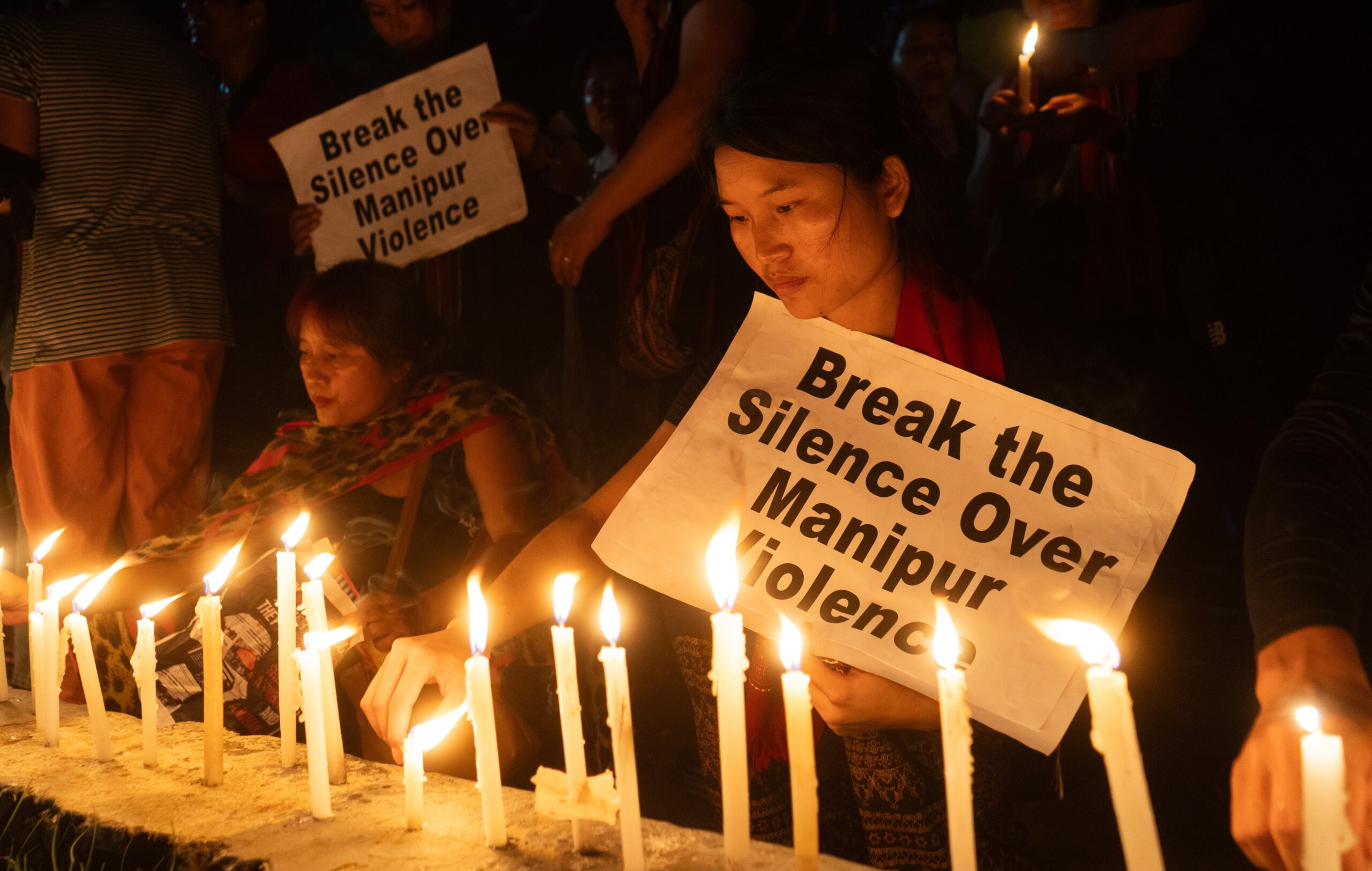
In recent months, the northeastern state of Manipur has become the epicenter of escalating ethnic and religious violence, revealing the disturbing reality of religious oppression in India. What began as intercommunal clashes between the Hindu Meitei and Christian Kuki communities in May 2023 has now evolved into a systematic persecution of minorities, particularly Christians, with the government of Prime Minister Narendra Modi failing to intervene decisively. The violence has taken a staggering toll, with over 415 lives lost, and the situation remains dire as religious tensions intensify. The question that looms large is: why has the Indian government remained largely silent in the face of these atrocities?
Manipur’s turmoil is not an isolated event, but a reflection of a broader pattern of religious oppression across India. Since May 2023, the violence in Manipur has centered around the demand for Scheduled Tribe status for the Meitei community, which the Kukis—largely Christian—strongly oppose. The clash has been exacerbated by a history of religious and ethnic tensions, and more than 360 churches have been destroyed in the region, along with the looting and burning of thousands of Christian homes. This destruction is not only an attack on property but a symbolic effort to erase Christian presence from the region, casting a shadow on India’s commitment to secularism.
The toll on the Kuki Christian community has been immense. According to Lydia Tombing Khuptong, of the North American Manipur Tribal Association (NAMTA), the Kuki people have borne the brunt of these attacks, with over 7,000 homes and properties destroyed, many of which were churches. The situation has left tens of thousands displaced, with nowhere to turn for justice. Despite the scale of the destruction and human suffering, Modi’s government has remained eerily quiet, offering little more than token responses to the crisis.
The world watched in horror as mobs attacked the homes of lawmakers and ministers in Manipur on the night of November 17-18, 2024, following the discovery of six decomposed bodies from the Meitei community. The violence has only escalated, with 23 people arrested for ransacking and arson. The political situation is no less volatile, as the National People’s Party, a BJP ally, withdrew support from the state government, citing the Chief Minister’s failure to bring peace to the region. This political instability is compounded by the Indian government’s refusal to address the root cause of the conflict—the growing influence of Hindutva ideology and its role in the persecution of religious minorities.
In addition to the violence in Manipur, India has witnessed widespread atrocities against other minority communities, especially Muslims and Christians. Reports from Christian Concern International highlight numerous attacks on churches, harassment, and allegations of forced conversions. In the first quarter of 2024 alone, civil society organizations reported 161 incidents of violence against Christians, with a significant concentration in Chhattisgarh, where 47 cases were documented. The situation is reflective of a broader pattern of religious intolerance that has been exacerbated under the Modi government.
Global reactions to the unfolding crisis have been muted, but the international community, particularly the United States, must act. The silence of world powers, especially the U.S., in condemning religious persecution in India is deeply concerning. The global community must not turn a blind eye to the human rights violations taking place in Manipur and other parts of India. It is crucial for international organizations and governments to speak out against the religious oppression, demand accountability from the Indian government, and push for an end to the violence.
Christophe Jaffrelot, a prominent political scholar, has rightly pointed out that Hindutva-driven policies are not only weaponizing affirmative action but also deepening ethnic and communal divisions. This ideological shift is evident in Manipur, where the elevation of Hindu Scheduled Castes reflects the growing influence of Hindutva extremism and the increasing persecution of Christian minorities. The Modi government’s failure to address the religious and ethnic violence in Manipur only underscores the need for global intervention.
In conclusion, the violence in Manipur is a stark reminder of the growing religious persecution in India. The destruction of churches, displacement of Christians, and intercommunal violence are not isolated incidents but part of a larger pattern of oppression. The silence of Indian leaders, particularly Modi, in the face of these atrocities is unconscionable. The international community must raise its voice against the rising tide of religious persecution in India and demand that the Indian government take immediate steps to address the crisis in Manipur and protect the rights of minorities across the country.
